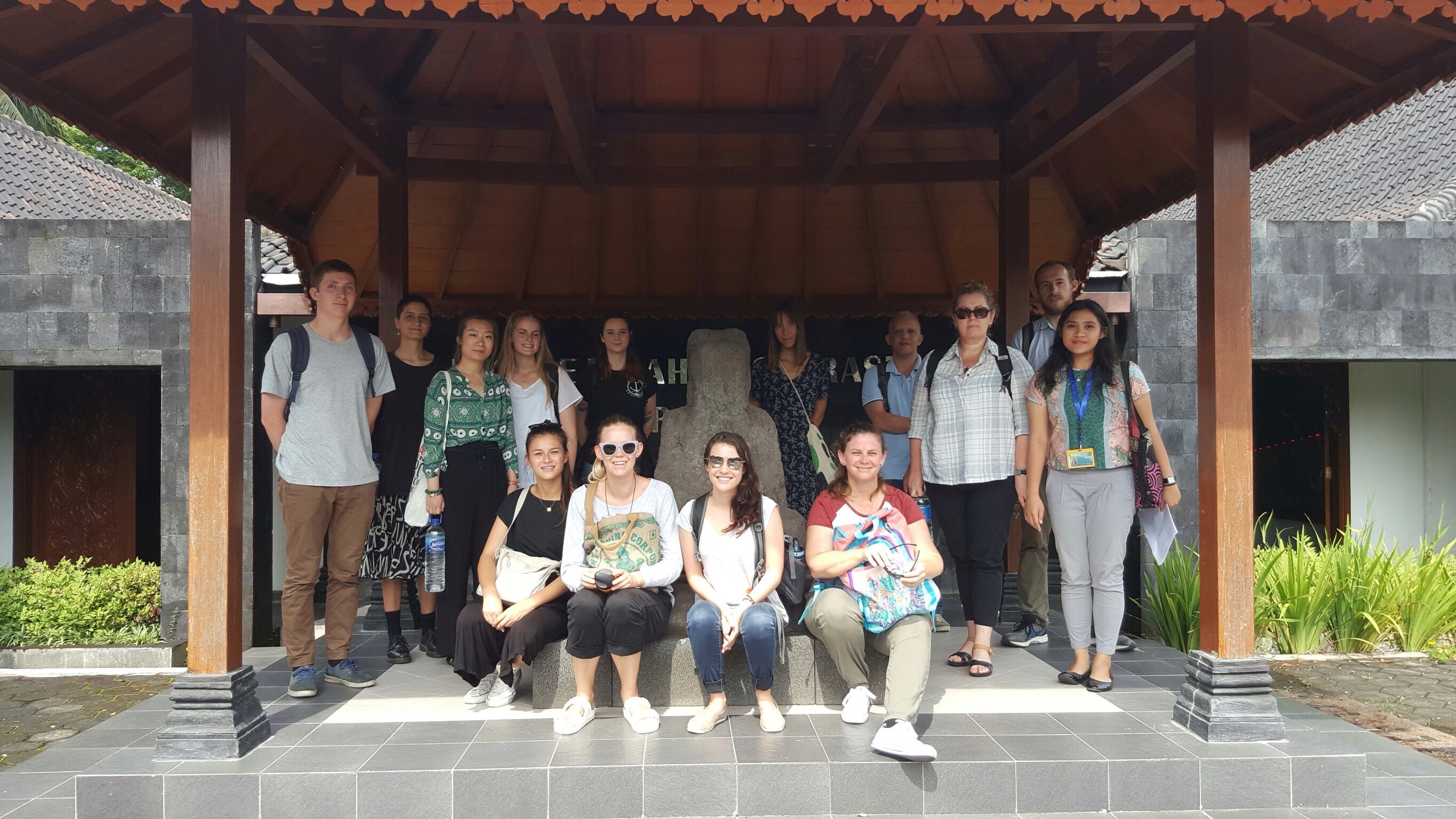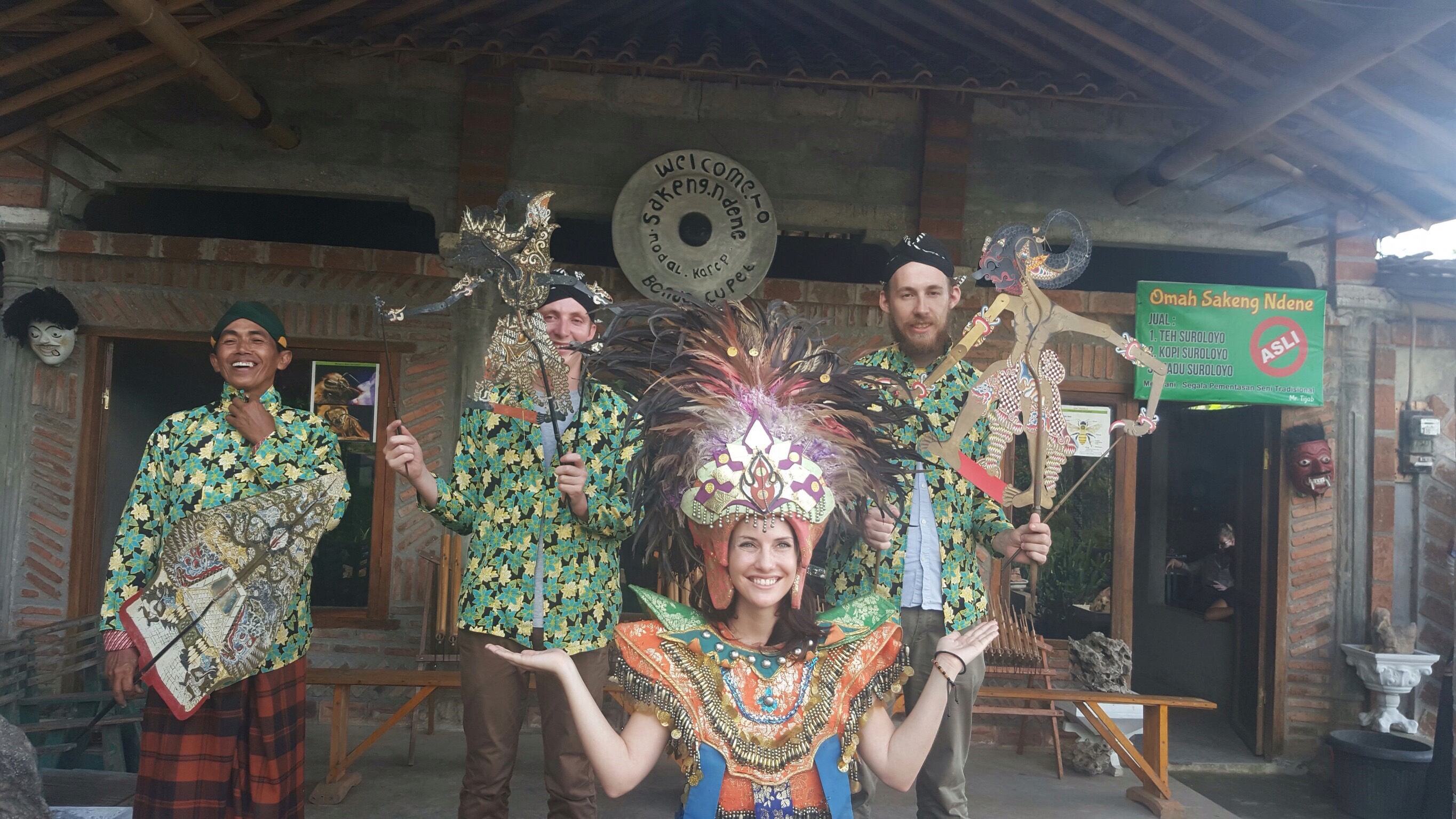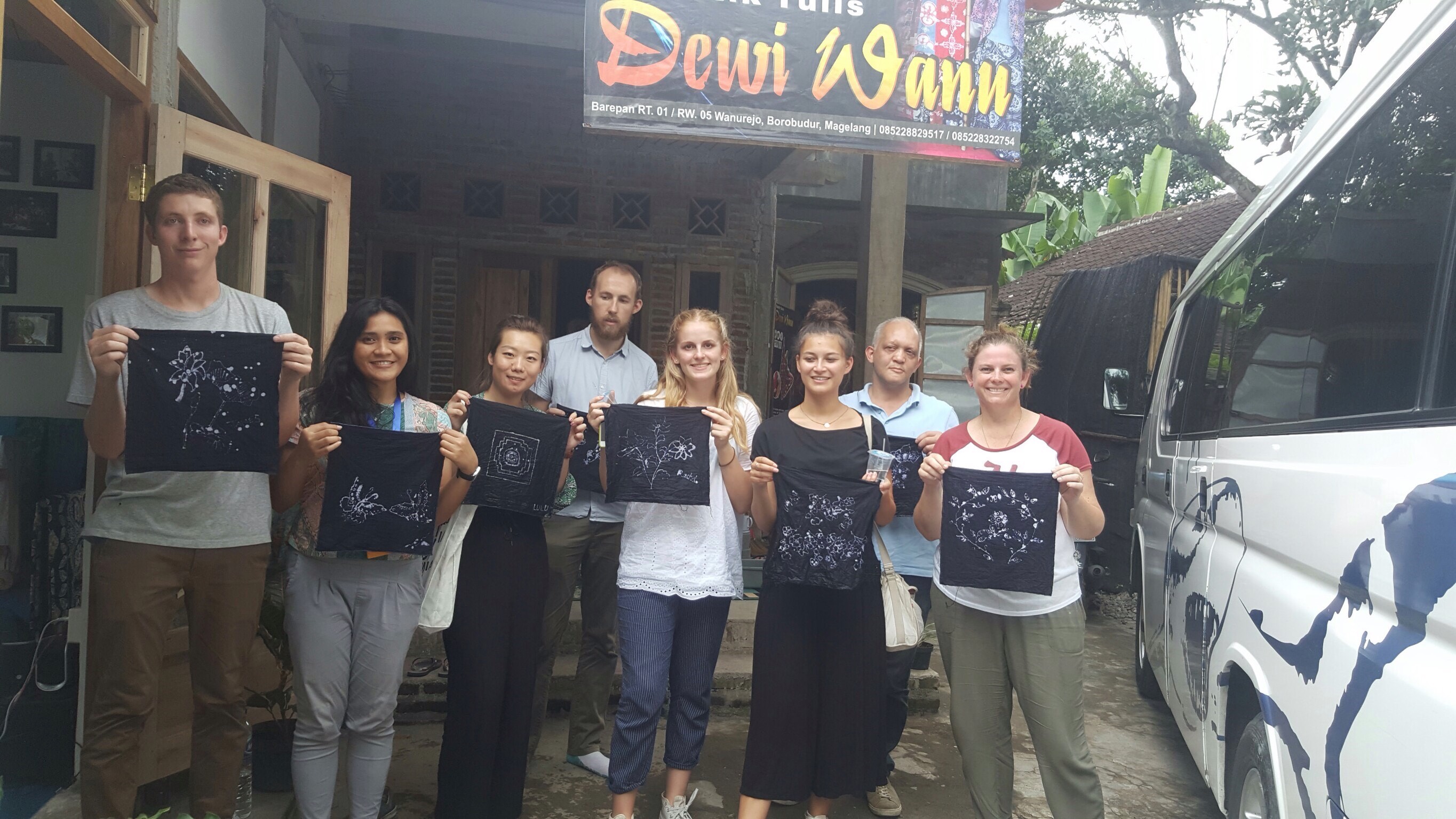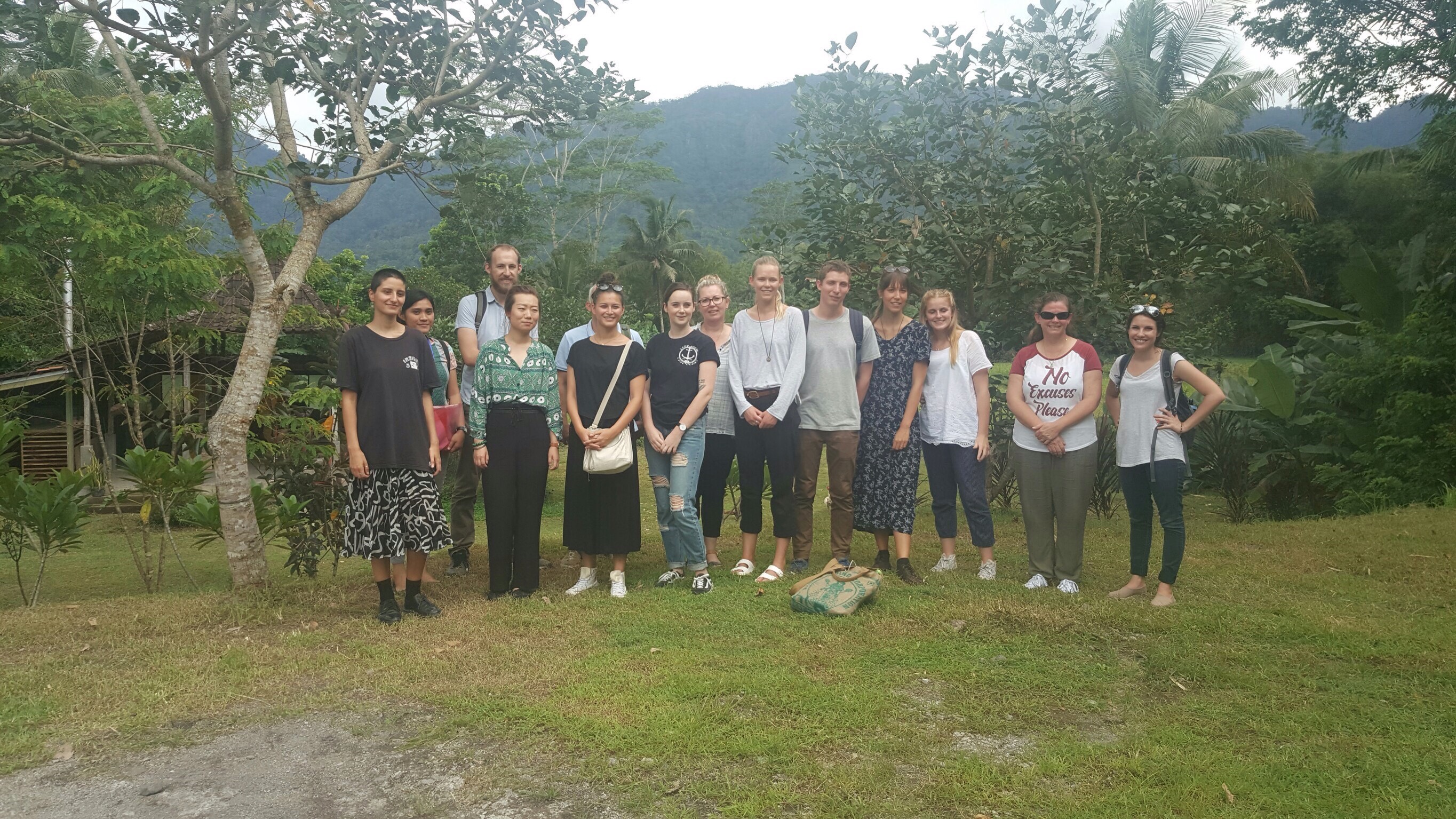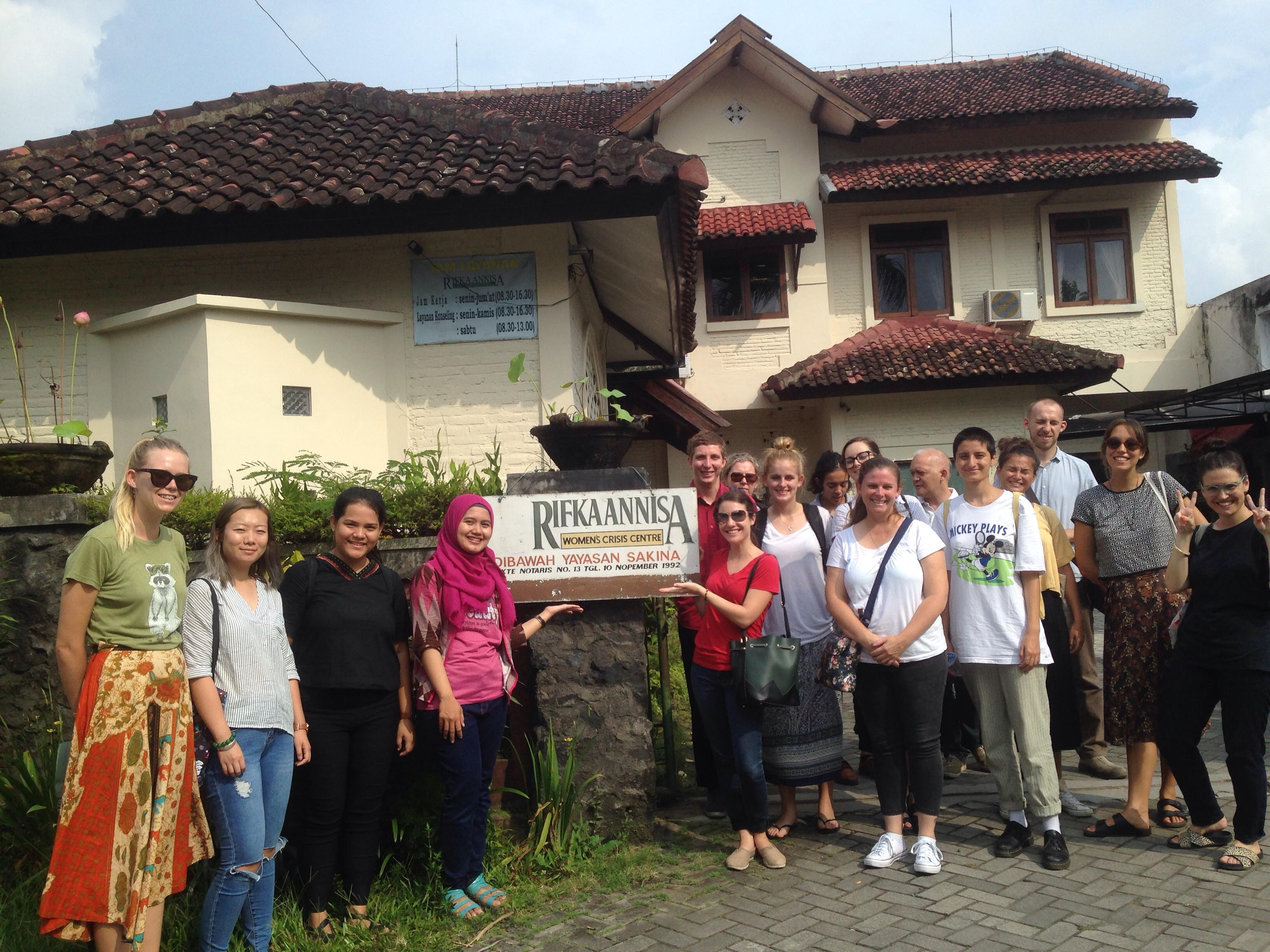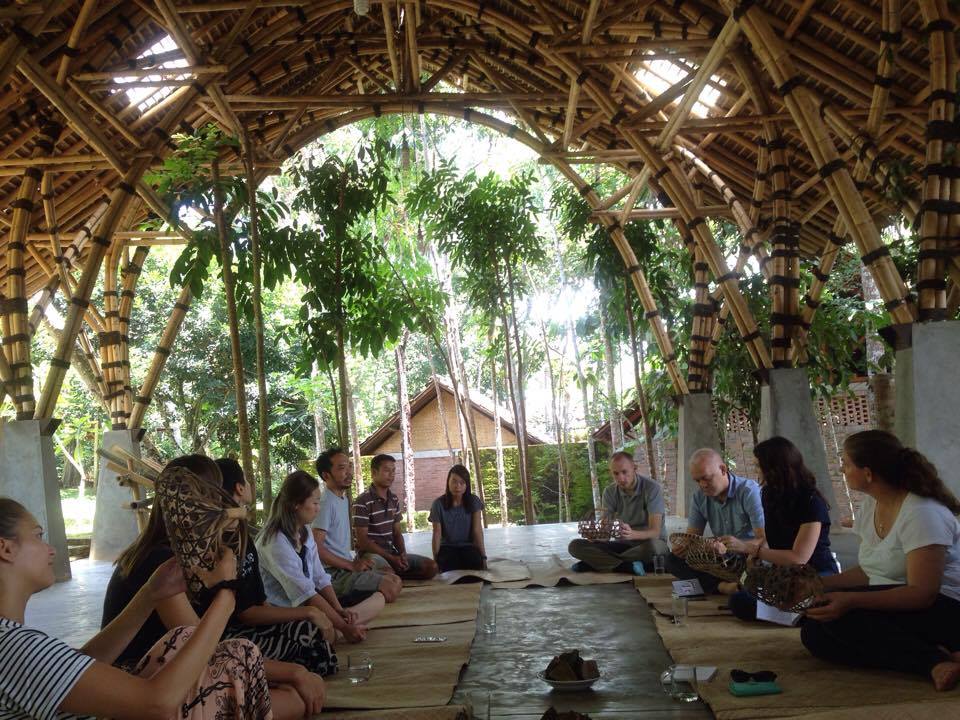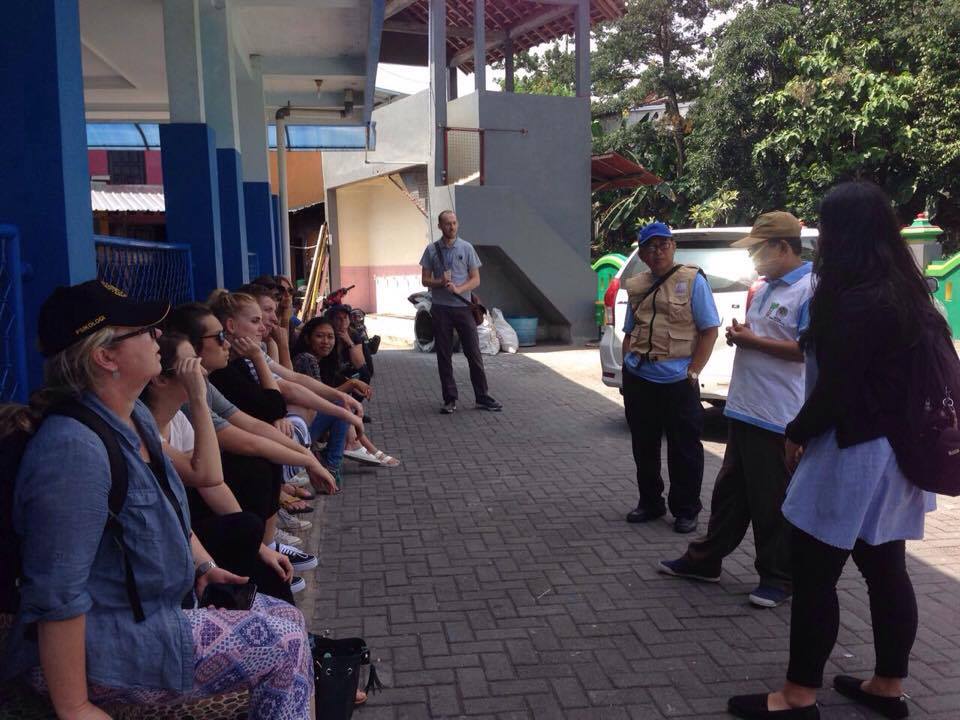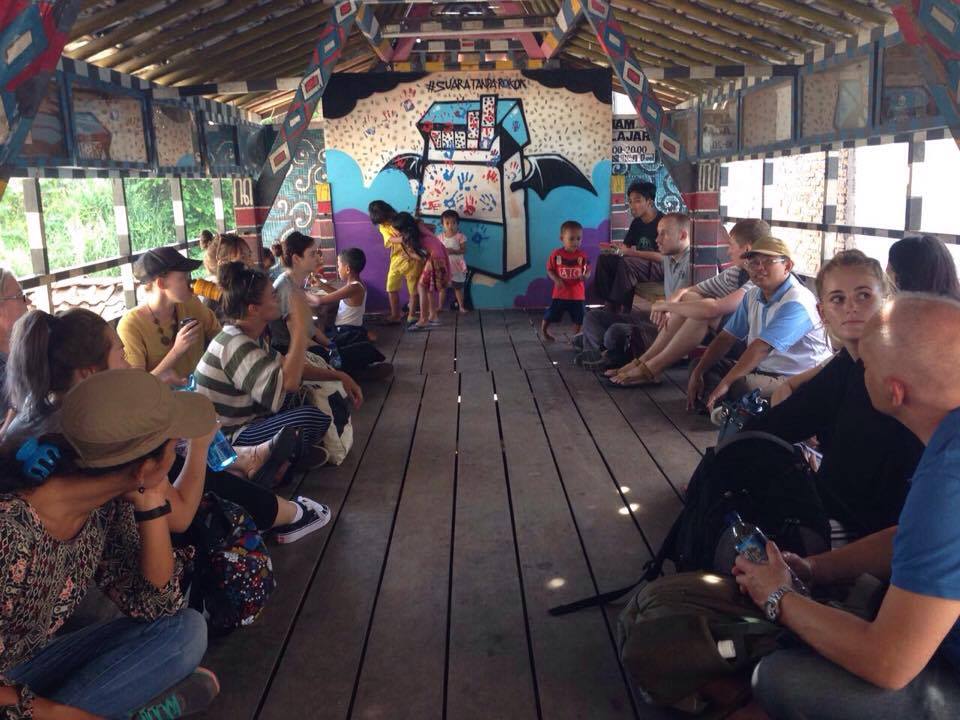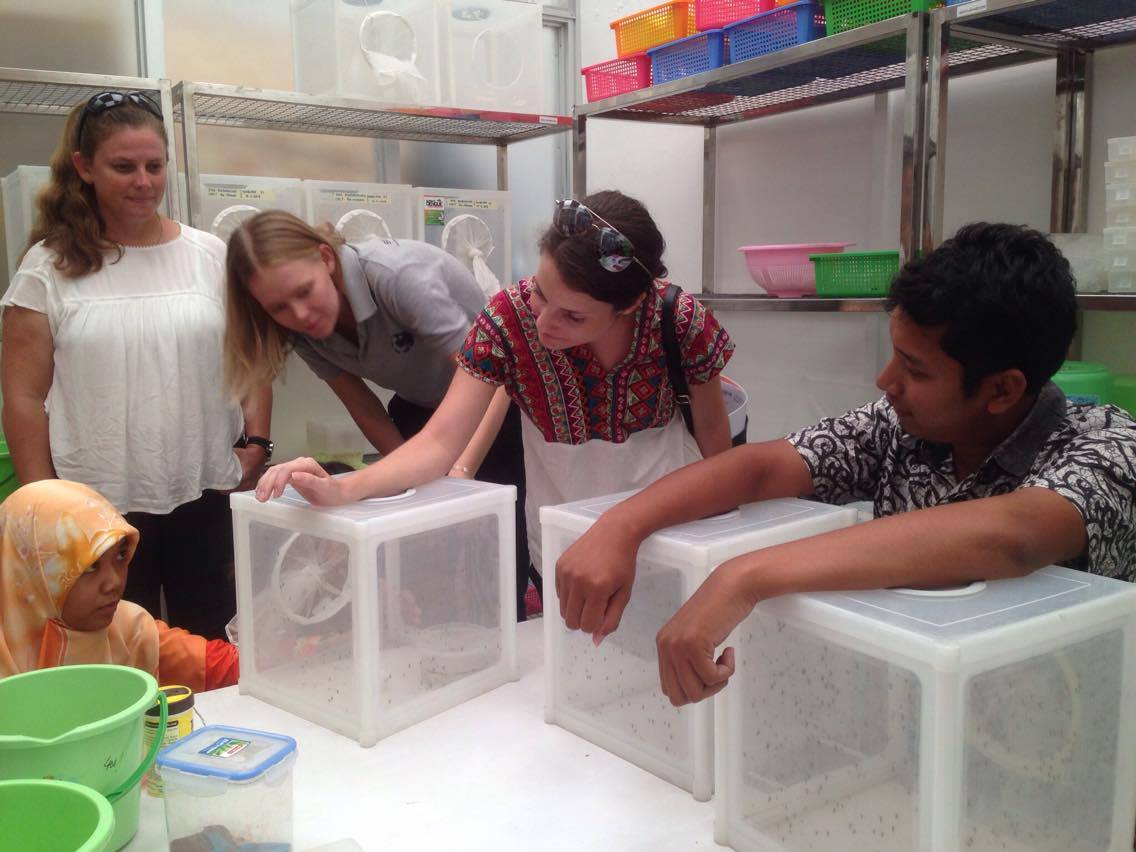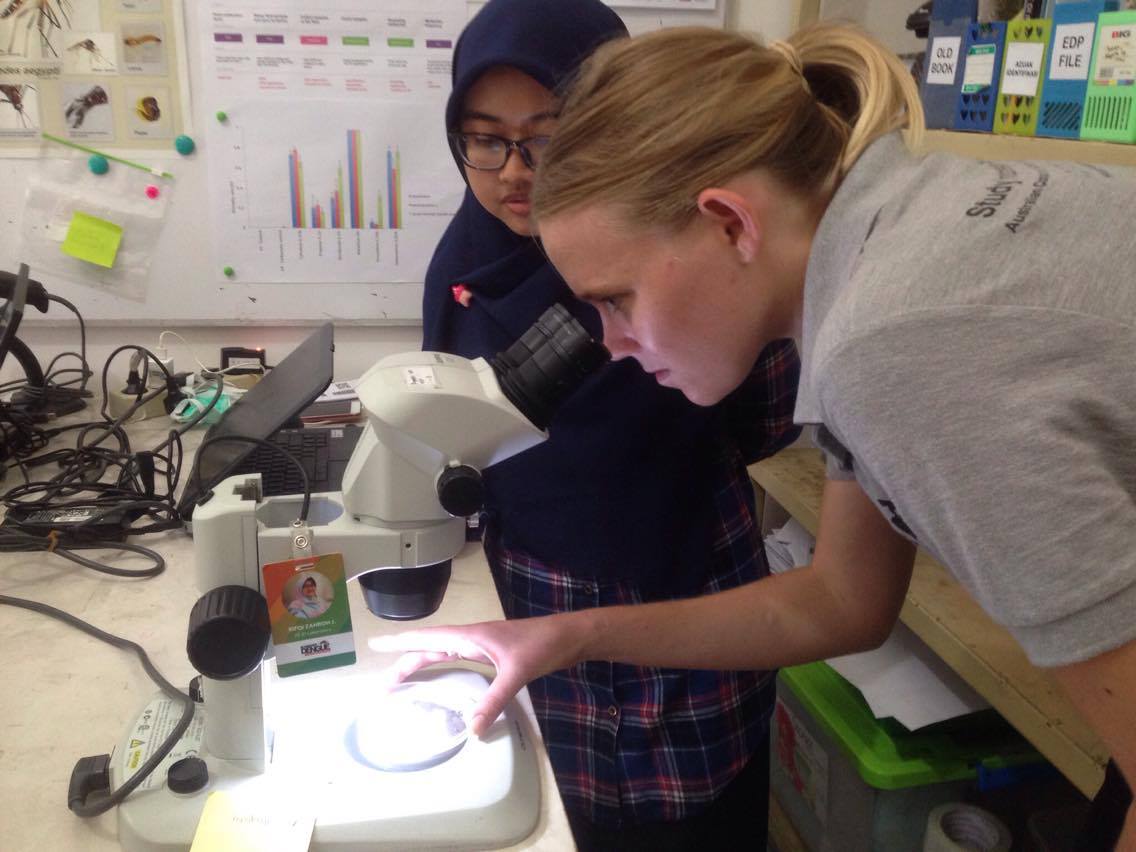14 students from La Trobe University, Murdoch University, RMIT University, The University of Adelaide, The University of Queensland, UNSW Australia, University of New England and San Diego State University on the Semester 44 (Jan 2017) Development Studies Immersion Program (DSIP) have completed their seminar series and case studies.
The seminar series opened with a visit to UNESCO’s project at Borobudur, with presentations from the Cultural Unit and Conservation Officer. This project is aimed at revitalizing and supporting the development of community livelihoods through the promotion of sustainable heritage tourism and the enhancement of creative industries in the area. At the local Galeri Komunitas (Community Gallery), students were exposed to the production of local arts and crafts, including pottery, shadow puppets and batik-making. These projects are all designed to build on local knowledge and skills and provide opportunities for the people of Borobudur.
The second seminar and case study was focused on disability and social inclusion in Indonesia. Students visited Saujana, a non-profit organisation working on bridging underprivileged communities to encourage social chance and environmental sustainability. One of the projects currently run by Saujana is Kerjabilitas.com, a career social network that provides employment opportunities in Indonesia for people with disability.
ACICIS Resident Director, Elena Williams, gave a presentation to the students as part of the third seminar. Elena spoke on gender and the current issues in Indonesia. The students then visited the Rifka Annisa Wcc (Women’s Crisis Centre). This centre aspires to gender equality and offers services for women and children who are victims of gender-based violence.
Our DSIP students traveled to Bumi Pemuda Rahayu, Imogiri, to participate in a discussion on sustainable development with representatives from the community. The BPR centre aims to support a vision of ecological sustainability through using various methods to minimise their carbon footprint. Students also then visited Humanitarian Benchmark Consulting, a company based out of Indonesia and Australia that focuses on sustainability, humanitarian response, disaster coordination, organisational development and capacity building.
The fifth seminar was presented by Ir. Wiryono Raharjo from UII Architecture Faculty, an expert in informal urbanism and informal settlements. He spoke on the informal settlement in Yogyakarta riverside communities and the students then visited the Kali Code (River Area) in Yogyakarta to observe these communities. Since 2000, a movement to keep the Code River clean and litter free has been carried out by several organisations that united to become the Yogyakarta Code Society.
The final seminar and case study was spent with Eliminate Dengue Yogyakarta (EDP Yogya). The students had the opportunity to learn about public health – particularly in dengue prevention, community engagement strategies, and the ongoing research efforts of EDP Yogyakarta.
All students are now completing their language study, and will be commencing their DSIP Professional Placement shortly. We wish them all luck on the next eight weeks.
See here for more information about the Development Studies Immersion Program.
